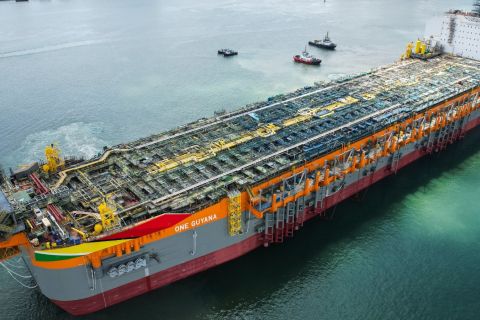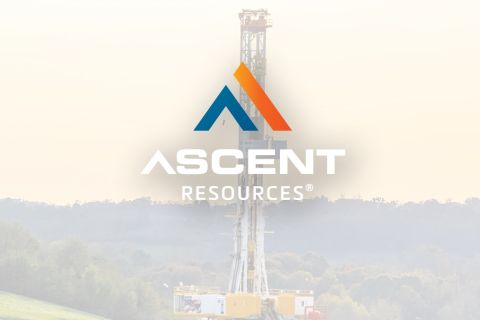With the Gulf of Mexico moratorium in the rearview, the US oil and gas industry may soon be back to work in deepwater exploration. While the work is certain to continue, it will be a somewhat altered environment for offshore operators and drilling contractors. The Deepwater Horizon incident will forever improve companies’ attention to detail when drilling in high risk deepwater acreage. “It’s clearly a significant change in the way we’re going to be doing business moving ahead,” said American Petroleum Institute President Jack Gerard in an interview with Bill Loveless of Platts Energy Week on its Sunday broadcast October 10. Gerard added, “We’re working closely with regulators. We’re working closely with Chairman Riley and Chairman Graham on the Presidential Commission to look closely at our industry practices.” While the new regulations remain unclear, they are out. Added to Tuesday’s October 12 announcement that the Gulf of Mexico moratorium on deepwater exploration would lifted prior to its planned November 30 deadline, offshore operators will soon be reentering the region. Gerard reminded, “We’ve operated in the Gulf for 65 years and we’ve drilled 42,000 wells without an incident of this nature. But this does indeed change things and we’re looking closely internally at our industry through self reflection through review of best practices and through working with regulators to make sure it never happens again.” It has been a bumpy ride for deepwater exploration since the massive spill took place in April. However, Gerard is certain that necessary steps are being taken to ensure that a similar event will no longer be possible. “Following the Gulf spill we moved very aggressively as an industry and organized the joint industry taskforce. We looked at 5 areas: equipment, best practices, well control, and spill cleanup. We got the best minds in the world together and we said ‘what else can we do better as an industry?’ How do we make sure we never again have another spill?” Gerard also explained some of the industry task force’s larger companies put together a major interest—committing to invest at least a billion dollars to situate the proper equipment and make it ready to go in the event of another tragic incident. “Their hope and expectation is to make the investment and then to never have to use this equipment,” Gerard said. As companies reenter the deepwater Gulf of Mexico in the US, the focus remains on safety. “It’s our number one priority. We’re recommitted to making sure this doesn’t happen again,” Gerard said. In addition to safety, Gerard focused on job creation as a main factor in removing the recent moratorium. “One of the key drivers that we should not overlook, particularly in this current environment, is the job creation potential. The oil and natural gas industry today supports 9.2 million American jobs; we created 2 million jobs between 2004 and 2007. There’s potential to create hundreds of thousands more,” Gerard said. With the new DOI regulations and possible Oil Spill Legislation after the mid-term elections, companies will likely reenter the deepwater Gulf of Mexico with some caution. “It is important to have regulation. It is important to have the appropriate regulation,” Gerard said. However, Gerard also said the moratorium that followed the Horizon incident was unnecessary. “We didn’t have to impose a moratorium and stop the economic activity to ensure safety. Those rigs were all inspected very quickly and passed inspection. It should allow us to continue. But we also believe there’s an appropriate role for the regulator,” Gerard said. New regulations are being released this week and Gerard, along with other industry watchers, expects the DOI to raise the bar for deepwater operations. “The key will be to make they don’t raise the bar so high that is discourages the very energy development we need to create good-paying American jobs and to create the energy that Americans’ need,” Gerard said. Overall, Gerard is optimistic about the future of deepwater exploration in US waters. In closing his interview, Gerard commented on two important factors affecting the outcome of deepwater exploration: public opinion and politics. “If there’s anything that cuts across all party lines and socioeconomic strata, it’s energy. It should not be a partisan issue; it should be something we’re all focused on and we do it well,” Gerard said. Based on the industry’s ability to create jobs even in tough economic times, the public mindset is geared toward returning to work. In addition, demand and the public need for energy resources are in support of reentering deepwater areas to develop domestic resources. As for Congress, Gerard’s message was clear, “We need a comprehensive energy policy in the US. We need to look at all forms, alternatives, oil and gas. So we hope they will turn to that as a major priority for the benefit of all of us particularly for job creation potential,” Gerard said. He added, “These are very, very important decisions—they are big decisions. And companies and enterprises have to calculate and figure out risk and if the bar is raised so high in the US that it discourages the development of the energy in US waters they will move—we don’t believe that is a good policy.”
Recommended Reading
Halliburton’s Low-key M&A Strategy Remains Unchanged
2024-04-23 - Halliburton CEO Jeff Miller says expected organic growth generates more shareholder value than following consolidation trends, such as chief rival SLB’s plans to buy ChampionX.
Deepwater Roundup 2024: Americas
2024-04-23 - The final part of Hart Energy E&P’s Deepwater Roundup focuses on projects coming online in the Americas from 2023 until the end of the decade.
Ohio Utica’s Ascent Resources Credit Rep Rises on Production, Cash Flow
2024-04-23 - Ascent Resources received a positive outlook from Fitch Ratings as the company has grown into Ohio’s No. 1 gas and No. 2 Utica oil producer, according to state data.
E&P Highlights: April 22, 2024
2024-04-22 - Here’s a roundup of the latest E&P headlines, including a standardization MoU and new contract awards.
Technip Energies Wins Marsa LNG Contract
2024-04-22 - Technip Energies contract, which will will cover the EPC of a natural gas liquefaction train for TotalEnergies, is valued between $532 million and $1.1 billion.





